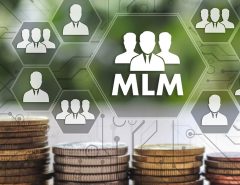Data analytics trends shift all the time. With 2025 now well underway, it is a good idea to see what trends will dominate this year so you can stay ahead of the curve and use these trends to your advantage.
Augmented Analysis
AI and machine learning are transforming many aspects of business, and this includes the analytics process. In augmented analysis, AI will automate some processes including insight generation and data preparation. With an array of tools, this will empower more people and organisations for a data-driven culture.
Data Governance
With everyone becoming more aware of how their data is used, data governance will gain importance. GDPR and CCPA driving frameworks, tools, and strategies will become embedded into daily practices to ensure compliance with the regulations. Fines for failure to comply are expected to rise.
If the rules around data governance or any other aspect of data analytics feel daunting, it can be worth engaging the services of a data analysis company. A data analysis company can make sure your business prioritises governance solutions for data that is accessible and trustworthy.
Python’s Dominance
A trend that is set to continue is the dominance of Python, which can seamlessly integrate with cloud platforms. Python is used at every stage of the analytics process from data mining to data processing to data visualisation, outpacing R in scalability and flexibility.
The Challenges of Using Structured and Unstructured Data
80% of data generated globally is unstructured. This includes images, texts, and videos. Businesses will need to harness this while being aware of the challenges which include higher storage costs and the need for specialised tools. These tools can be expensive and require expert knowledge to use them.
Addressing Data Silos
Data silos limit a holistic view of decision-making and operations. A trend for 2025 is likely to be addressing this challenge, with investments in breaking silos likely to grow. Natural Language Processing, or NLP, is set to transform how users interact with data, making it more accessible to everyone and empowering more informed decisions regardless of technical expertise.




Leave a Reply